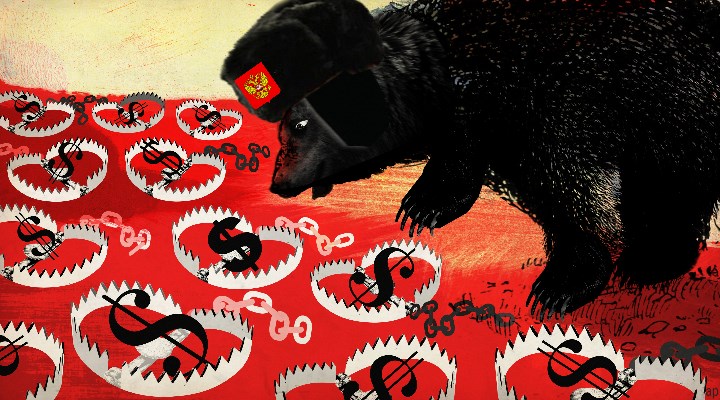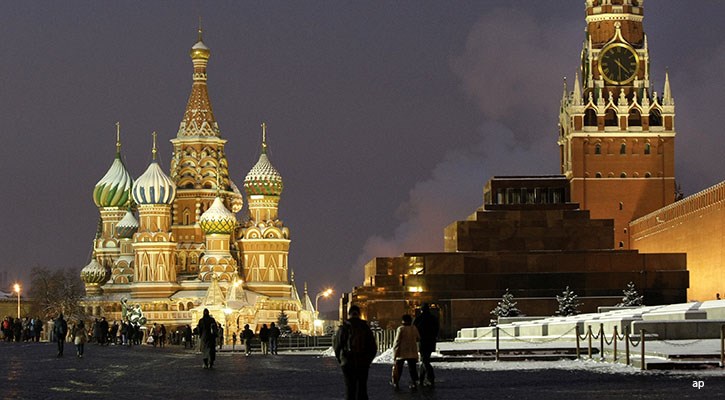
Several leading cigarette manufacturers have announced they intend to change their strategy in Russia in light of sanctions imposed by the West.
In response, we have updated our cash flow forecasts and fair value estimates for the tobacco companies we cover. While we consider events to be materially negative to cash flows in the short term, we think the market has overstated their impact.
Philip Morris International (PM), for instance, has ceased investment in Russia and plans to scale down its business there. British American Tobacco (BTI) will exit Russia and "transfer" its Russian assets to a third party.
Imperial Brands (IMBBY), meanwhile, has suspended all operations in Russia, and Japan Tobacco (2914) has ceased planned investment in Russia. In Ukraine, all cigarette makers have suspended operations, although we expect manufacturing to resume when (and if) hostilities end.
No Easy Way
Although the tobacco manufacturers are adopting differing strategies to exit Russia, we do not see many positive outcomes. We expect negative impacts on revenue and capital returns. Write-downs of assets seem likely across the board. Russia is the fourth-largest cigarette market in the world, with market volume of almost 206 billion sticks in 2020, according to Euromonitor.
Japan Tobacco is the most exposed with a volume share of 38%, representing almost 16% of group tobacco volume in 2021. Philip Morris International and British American Tobacco are the next largest with shares of 26% and 25%, respectively, representing 9% and 8% of group volume. Although Imperial Brands is smaller, with only 8% share, we estimate it represents 7% of group volume.
The following assumptions underpin the changes we have made to our estimates of the tobacco manufacturers, so they are subject to material change as events unfold. The assumptions refer to our analysis of the tobacco companies only and do not represent Morningstar’s view on the outcome of current geopolitical events.
We assume the conflict will last for six months, during which the market in Ukraine will go to zero and Russia will be severely constrained. Thereafter, Ukraine will steadily recover over a multiyear period, while Russia remains subdued because of continued ruble weakness.
The cigarette market in Russia has been declining at a 6% compound annual rate over the last 10 years and almost 7% over the last five years, according to Euromonitor. Japan Tobacco reports that the total tobacco market, including heated tobacco units, has declined at a rate of around 3%. However, this has been a promising market for heated tobacco adoption; we estimate that heated tobacco units accounted for 11% of the total market in 2021, making Russia one of the largest markets for heated tobacco outside Asia.
For Philip Morris International in particular, an exit from Russia would represent the removal of a significant opportunity and could jeopardise its medium-term targets for IQOS heatstick sales. Our base-case assumption, however, is that PMI will continue to market in Russia, and although it will no longer manufacture there, it will import products from its cigarette and heatstick facilities in other European markets.
As such, we assume a 45% decline in PMI’s Eastern Europe regional tobacco volume and a 59% decline in regional revenue in 2022, with a slow recovery thereafter. The collapse in the ruble will create translational foreign exchange pressure and is likely to make an already low-margin market even lower. We think volume in the Eastern Europe region could fall as much as 45% during the worst of the conflict and 35% for the full year, based on the near elimination of volume in Ukraine, which represents around 13% of PMI’s regional volume, and a 50% decline in Russia, which we estimate represents 60% of regional volume.
On an organic basis, we expect revenue to decline at a slightly less steep rate, as we anticipate significant price hikes in Eastern Europe to be mitigated by a negative mix shift from consumers trading down, while the depreciation of the ruble will create material currency headwinds to reported revenue to the tune of 35% if current rates prevail for the rest of the year.
In the medium term, our base-case assumption is that PMI remains in Russia and that the Russian economy recovers, but if the company has to import products into Russia, import duties and increased distribution costs could accelerate the structural volume decline of the market. We have accelerated our steady-state assumption for the Eastern Europe volume decline rate to 5% from 4%.
The Big Write-Down
Regional margins are also likely to contract materially in the near term. PMI, along with the other manufacturers, has pledged to continue paying the salaries of employees in Russia and Ukraine, even as revenue will probably be decimated. Costs, including marketing and distribution, will be reduced very quickly. This is significant, given the heavy investment in the initially high IQOS customer acquisition costs, but some fixed costs will remain until the manufacturers can exit leases and other contracts relating to fixed assets.
Under the assumption that 80% of operating costs are fixed, we are lowering our 2022 forecast for PMI’s Eastern Europe EBIT margin to 10%; we see a modest operating loss in the first half of the year and a subsequent recovery to a 20% margin in the following year as the markets rebound. This forecast is particularly sensitive to the duration of the war, however. We retain our steady-state EBIT margin forecast of 32%, as we expect the higher cost structure to be passed through to consumers through higher prices. Taking all of this into account, we have lowered our fair value estimate for Philip Morris International to $103 per share from $108.
British American Tobacco has said it intends to cease selling products in Russia, so we focus our analysis on the valuation impact from the loss of future value creation. We make several common assumptions, including a 9.7% discount rate, based on our 7.5% cost of equity assumption for US companies, a country risk premium of 2.18% (as estimated by NYU Stern School of Business professor Aswath Damodaran), flat cash flow growth based on volume declines offset by price/mix, and a 20% corporate tax rate in Russia.
BAT has disclosed that Russia and Ukraine combined represent 3% of its consolidated revenue; we estimate that the bulk of this is Russia, at 2.5% of net revenue. The company markets Rothmans, the second-largest cigarette brand with a volume share of 13%, and has a presence in heated tobacco with Glo. BAT’s adjusted EBIT margin in Europe and North Africa was 32.5% in 2021, so we estimate a 32.0% EBIT margin to account for the slightly lower structural margins in Eastern Europe versus those generated in developed European markets.
Under these assumptions, we estimate the write-down that BAT is likely to take on its Russian operations will be in the region of GBP 1.7 billion ($2.2 billion), or roughly 2.4% of its current market capitalisation. This corresponds to the reduction we have made in our fair value estimate to $51/GBX 3,900 per share from $56/GBX 4,000, but it is well below the 10% loss of market cap that BAT has suffered since the invasion of Ukraine.
We also estimate a potential write-down for PMI, were the company to exit Russia, but at present, this appears to be a worst-case scenario, rather than a base case, because its management’s public statements appear to leave the door open for continuing to go to market in Russia. As the number two with a collection of brands with low- and mid-single-digit volume shares, including Bond Street, Philip Morris, and Parliament, and as the market leader in heated tobacco with IQOS, PMI generates 6% of its consolidated net revenue in Russia. Assuming a 35% EBIT margin, we estimate PMI’s worst-case write-down to be approximately $7 billion, or 5% of its market cap, well below the derating of the stock that has occurred since the invasion, which has wiped $30 billion from PMI’s market cap.
Imperial Ambition
Imperial Brands is a fairly distant fourth in Russia. Its collection of cigarette brands, with roughly 2% volume share each, includes Maxim, Parker & Simpson, West, and Davidoff. In aggregate, Russia and Ukraine represent 2% of Imperial’s revenue, and with some superpremium brands in its portfolio, the company generates some of the highest margins in the market, despite its inferior scale.
Imperial’s stated strategy is to suspend but not cease its activities in Russia, a stance we believe positions it to resume commercialisation when hostilities cease. On that basis, we eliminate sales in Russia and Ukraine in the first half of the year but expect a slow recovery by the end of the year. This has a negligible impact on our valuation.





























